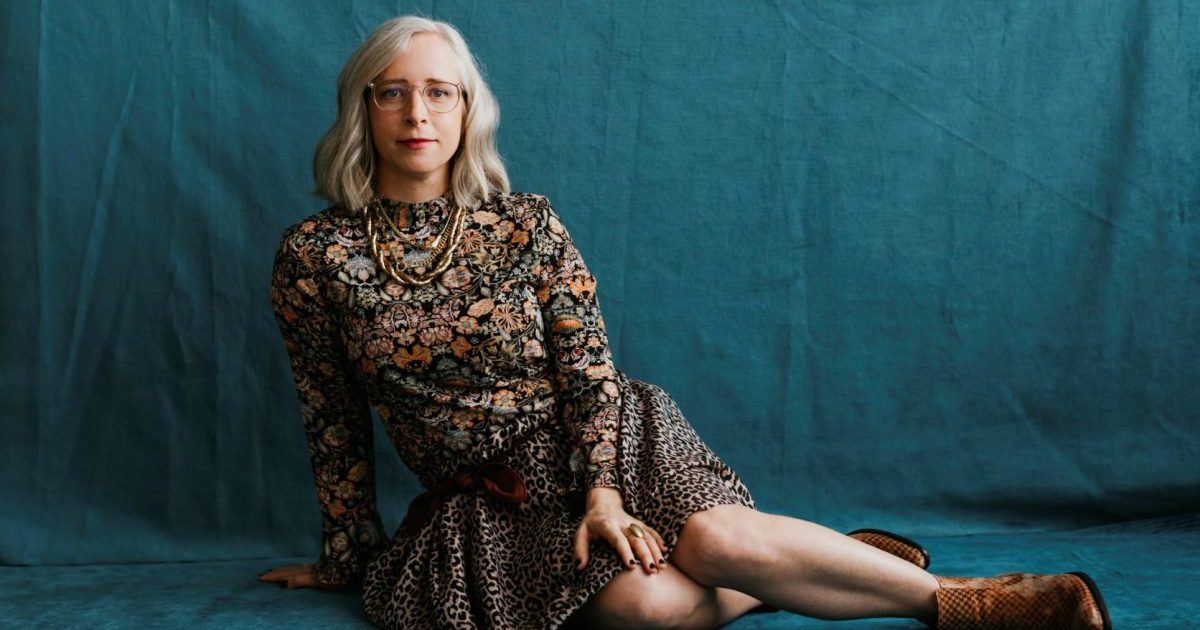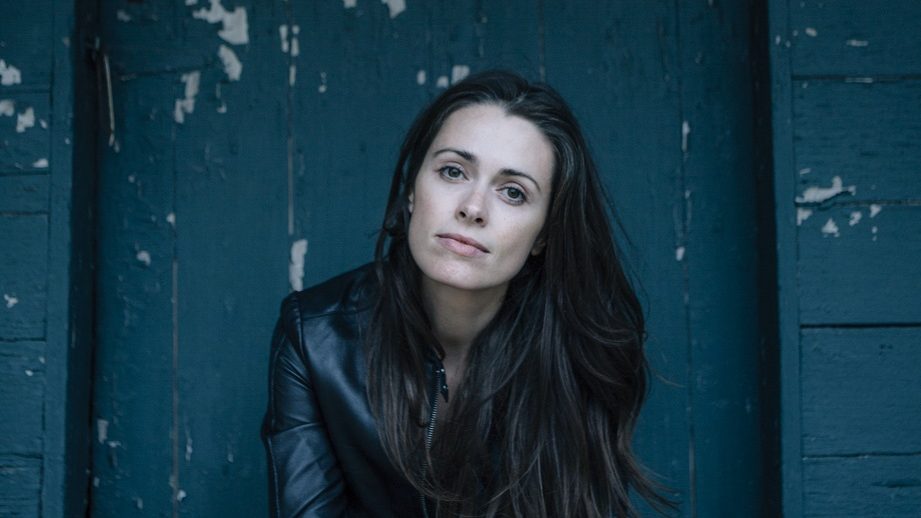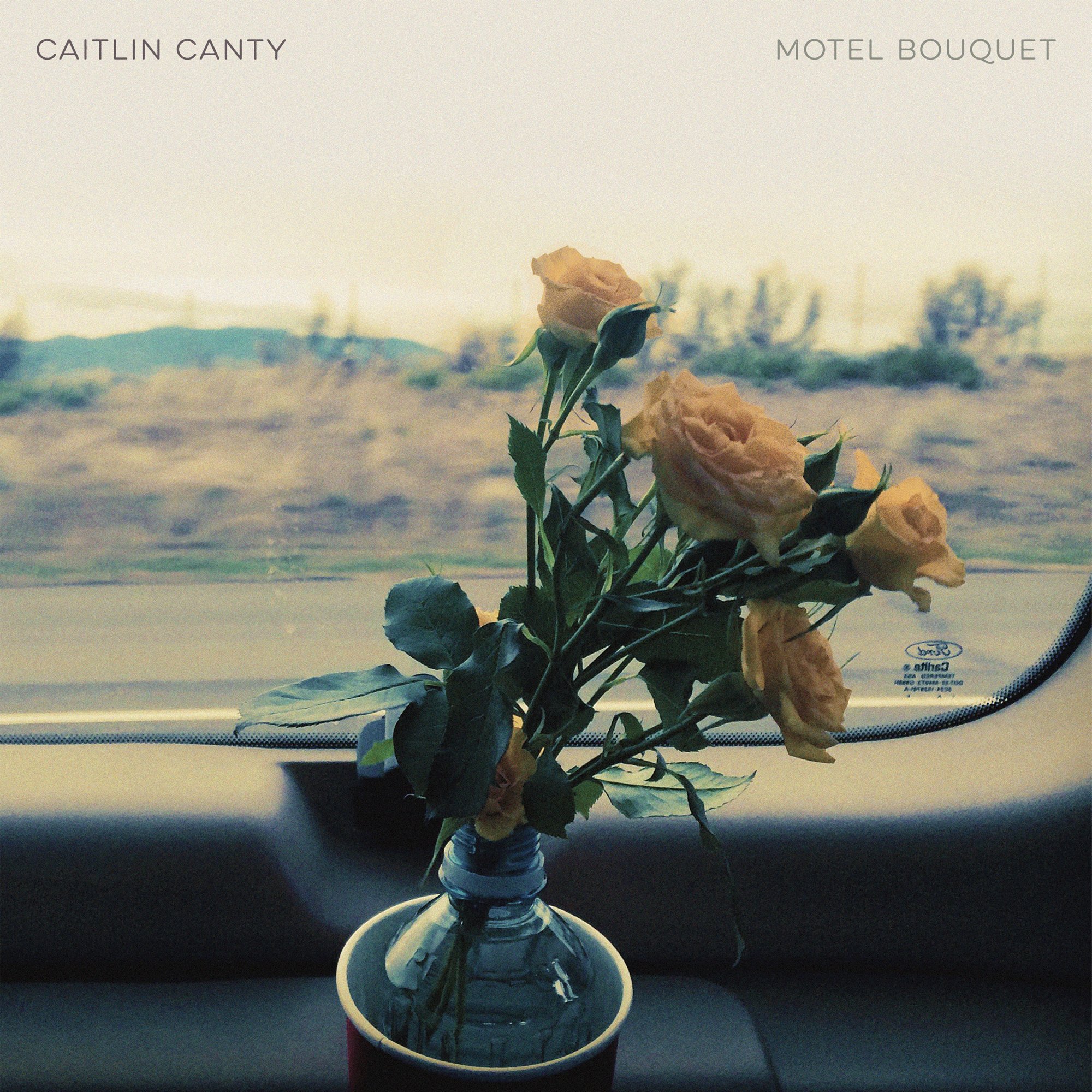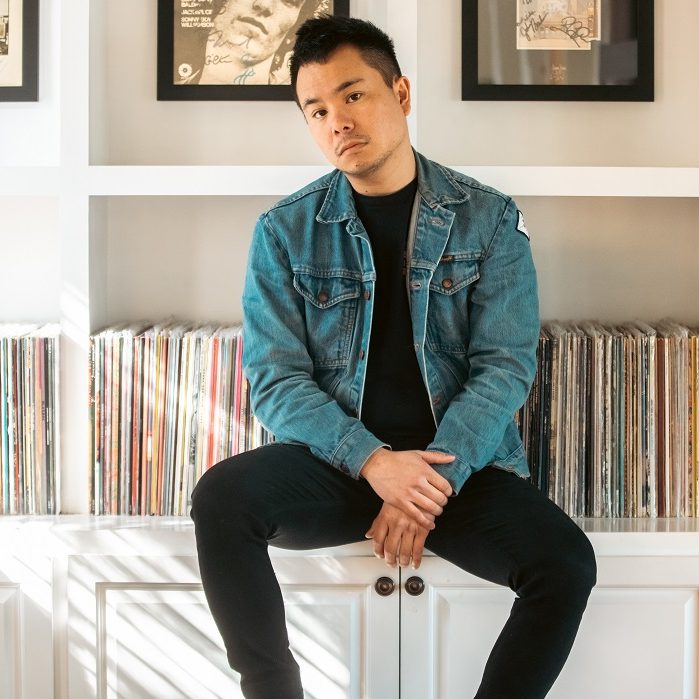Laura Veirs has been carving her path forward. Found Light, her latest album, is packaged a bit differently than much of her discography. For one, it’s recorded live, flaws and all; she also stepped into a producer role for the very first time.
The latter is in part due to her divorce from former producer and collaborater Tucker Martine. In his stead she collaborated with Death Cab for Cutie’s Dave Depper and producer Shahzad Ismaily. Across 30 years of experience songwriting — “if you go from the start to now” — Veirs has released 12 albums, one EP, and a collaborative album with k.d. lang and Neko Case, appropriately named case/lang/veirs.
She’s homed in on playing music that sounds live, and even a little bit imperfect, and boasts a spate of influences, from riot grrl to Ethiopian jazz. Veirs spoke about her newfound independence, as well as her overarching career.
BGS: Could you tell me a little bit about what was going on in your life before and while you were recording the record?
Veirs: I was dating and mourning the loss of this long relationship, and trying to figure out how I was going to move forward as an individual because I’d become, I think, overly dependent on my ex’s opinion of everything that I was doing artistically. I reached out to a friend named Shahzad Ismaily, from New York, who ended up co-producing the record with me … I had found my sea legs in terms of being a single mom, and found a great collaborator in him in terms of feeling like we could co-produce as equals: there was no tension, there was no battling for dominance or anything like that. It was just very free and fun.
And we recorded live, which I hadn’t done much of at all: guitar, vocals, with him playing drums. The end result is a really fresh-sounding record — fresh for me because it’s number 12, but it’s very new. First time co-producing, first time curating all the songs myself. I overwrite, that’s something I’m working on now, is not writing too many songs … My goal is to not write more than 50 to get the 10 or 12 to record. I don’t even know if I’m going to make another record, honestly; I don’t feel drawn to it. I probably will, but I never want to make art or do creative things if I feel resistance to it.
Why did you decide to co-produce the album?
I didn’t feel the confidence yet to totally produce it myself. Also, I wanted a friend; I wanted to have another set of ears. And Shahzad was perfect for that. He’s very wide-ranging in his music tastes and his music experience, and he’s very skilled on many instruments … having a friend who I trusted was really nice because I was so used to trusting Tucker with everything and then just focusing on my parts, which were writing and playing in the studio.
I took more ownership of my music, or ownership of the sound. I tried to figure out more about what my taste is, and that was illuminating. I didn’t really do that before, even though I’ve been doing this for 22 years — 30 years, actually. I just hadn’t really, I guess, cared? I don’t know if it’s cared or been in a relationship with someone where I felt like I wanted to talk about that stuff and think about that stuff. If I make another record, I will want to produce again … I’d be curious to see how changing up my crew each time changes the sound of the record.
When you look back to your previous albums, what do you feel is a core difference in terms of your hand in production here?
It’s more sparse, which I like in general. … I can hear the difference. I don’t know whether other people would be able to, but I like that and I will go forward with [the live] approach. And more [leaving] a couple flat notes in there because that’s how I sang it. You know, don’t make it all sound perfect.
Can you tell me a little bit about your early interest in guitar?
I started off playing casually for fun at home at 18; my brother showed me some chords. I was listening to Joni Mitchell … and the pop music of that time, which was the early ‘90s. And when I went to college at Carleton College in Minnesota, I learned about the riot grrrl scene. I wrote [a letter] to Bikini Kill … and I asked, “How do you start a band?” And Tobi Vail, the drummer, wrote back, and she was like, “Play with as many people as you can, and have fun,” which was a really great way of saying, “Get out there and just do it.” And so I made an all-girl punk band.
I moved to Seattle and I was interested in punk music at that time: electric guitar, loud stuff. Then I got influenced by Gillian Welch, more of a country sound, slash I got interested in the roots of American folk music like Elizabeth Cotten, Mississippi John Hurt, Mance Lipscomb, all those people doing really complicated fingerstyle. I learned a bunch of that, and that really influenced the way that I played and wrote. It was a mix of those two things throughout, the older folk stuff and the more edgy punk stuff, and penduluming back between those things the whole time.
It’s funny you mentioned that, because I’ve been reading a book about riot grrrl.
Certainly the DIY ethos around that, like Ani DiFranco’s ethos of doing it yourself, still is a big part of the way I run my business, being my own record label, owning all my own music, being strongly involved in my management team — and they run my label, but they also run my career … I think that me being that involved comes from wanting to have control over my music, from the riot grrrl thing. From DIY punks.
As you were making this album, were there specific artists who inspired you?
In the writing, I was influenced by Adrianne Lenker, who I love. Her approach to her new album songs impacted me in terms of how she’s singing it, playing it live — there’s so much richness in a guitar and a voice and very few overdubs. … I’ve aspired to that for a long time, but I haven’t really done it. African music is an influence, like Oumou Sangaré and the way she uses polyrhythms and shakers, and also Alice Coltrane — she’s a harpist — you can hear her influence on some of the jazzier stuff … Pharoah Sanders from the Alice Coltrane stuff, we referenced him [for “Naked Hymn”].
This is quite a personal album. I think about this a lot in art: how much we share and don’t share about our lives and ourselves; what we warp and what we change and how honest we are. When you’re writing something, how do you decide how much you want to share?
That has also been a pendulum. I veered towards the more vulnerable, open, honest side on this one, and I’ve also pendulumed over to the more obscure, abstract or impressionistic lyrics, and I think both are valid and both are great. But I felt that it was important to get more into the nitty-gritty on this one because I had gone through such a raw, difficult experience: I didn’t want to sugar-coat it.
I would say there were songs like “Time Will Show You,” where I’m talking about Airbnb sex. That was a new thing, for me, to be that open. And initially I tossed that song in the bin … I think I was scared of sharing that much. I teach songwriting, and I teach writing workshops, and I’m always encouraging people to be vulnerable, because I feel like that’s where the connection point is. But then when I was actually doing it, I felt like maybe this is too much. I did have my kids in mind, and my ex: he did some awful stuff but … I didn’t throw him under any buses, which I could have done. But I didn’t want to do that, for my kids’ sake, and because I don’t want to live in that place. I don’t want to have to sing songs that way. I don’t want to have to relive it over and over again; I already have to relive it during interviews.
Of course, and you want to protect yourself too, how you feel; it’s hard to perform things that are so emotionally wrought.
Exactly. I don’t play certain songs. I won’t play “Eucalyptus”: I don’t feel like playing it. It’s the one about how he crushed me. And that’s the truth.
We’ve spoken a lot about having control over the process, so I’m wondering what you’ve discovered about yourself while making the album.
I have a public persona of being very confident, but when I went into this album, I did not feel confident at all. I feel a lot more confidence now in myself as a writer, without needing Tucker to say, “You’re okay.” I feel much more confident as a live player in the studio, a performance bass player, and I feel more confident as a producer: someone who could produce someone else’s record or produce my own record on my own without a co-producer, and those are big changes. That’s liberating for sure.
Outside of the album itself, are there any hobbies you’ve picked up that have fed into that independence or that sense of identity?
I started long-distance cycling … I started painting [too], because I moved to my new house about a year ago, and I didn’t have any art because I’d purged all our old art, slash didn’t have any art because Tucker was always decorating. I was like: Well, I don’t have a big budget. I just spent tons of money on my divorce. Let me start painting because I’ll put something on the wall myself. And then one thing led to the next and I was going into my obsessive mode where I was always painting … It’s been something that I felt has helped me claim my own self as an artist and not have any associations with my ex or pressure to collaborate.
It’s very freeing to pick up a new art form that feels practical in the sense that I can decorate my own home and other people’s homes. I still have that beginner’s mind, [but] I’m starting to feel a little bit of weirdness around it. That’s something I’m looking at: why do we start to get neurotic about art as we get more involved in it? Why can’t we keep that childlike wonder and that lack of attachment that you feel in the beginning? But still, it’s still fun for me and it’s not pressurized, whereas music is my career, it is how I make a living, it is how I feed my family, so there is pressure there that isn’t there with the visual arts yet.
Photo Credit: Shelby Brakken



